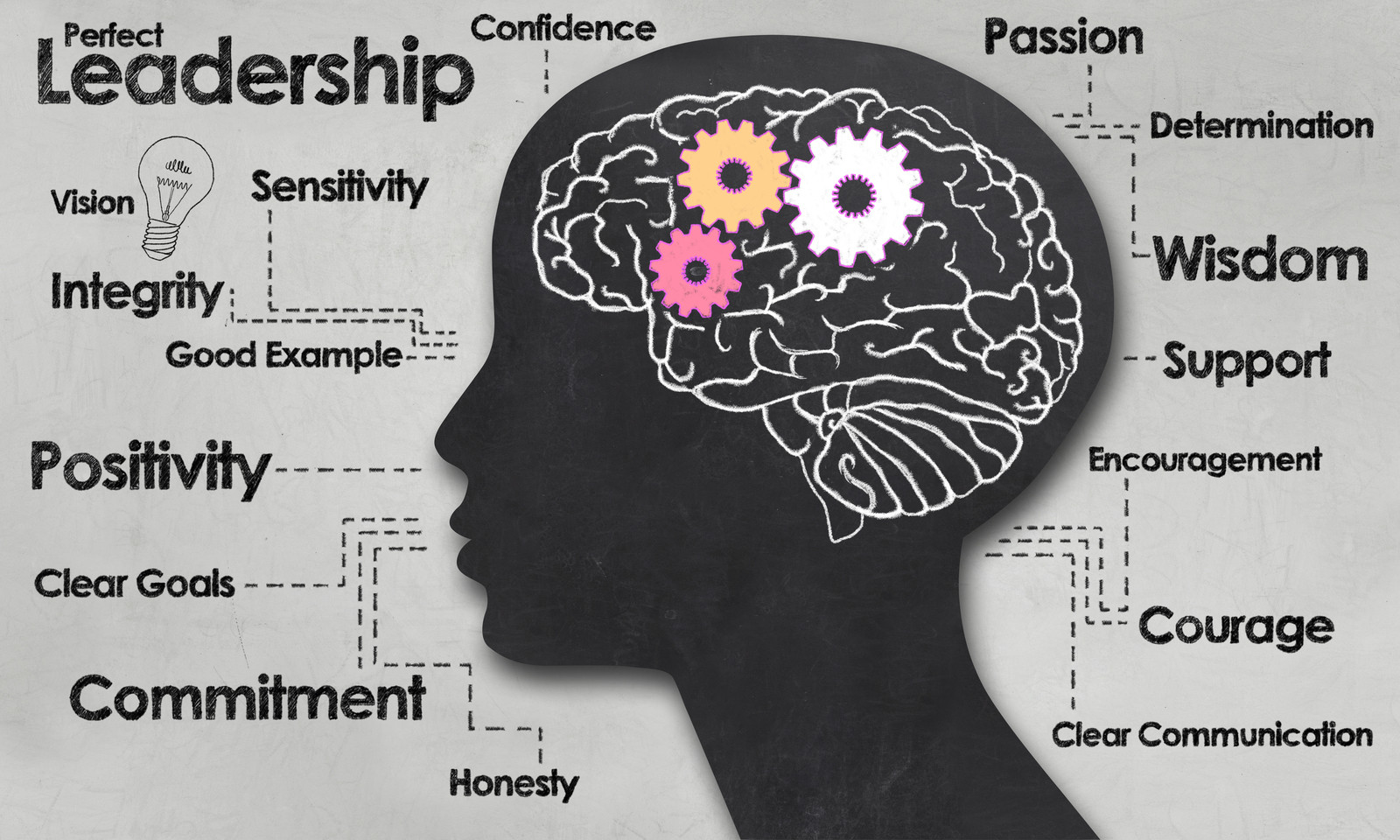As a leader, there’s no doubt that you are constantly striving to improve your performance and elevate your leadership abilities. However, the journey to becoming a successful leader is not always easy, and sometimes it can be challenging to know where to start. That’s why we’ve put together a list of five powerful strategies that you can use to take your performance and leadership to the next level. We’ve got you covered, from building solid relationships to developing your communication skills. So, whether you’re just starting out in a leadership role or a seasoned pro, these tips will help you achieve the success and impact you’ve been dreaming of. Let’s dive in!

Set clear goals and objectives
Setting clear goals and objectives is essential to achieving success in your personal and professional life. Whether you want to become a better leader, reach a specific career milestone, or improve your relationships, the key to getting there is to create a roadmap of measurable objectives that will help you achieve your desired outcome.
One of the most significant benefits of having clear goals and objectives is that they provide a clear direction for your efforts, helping you to focus on what matters most. In addition, when you have a specific target in mind, you are less likely to get sidetracked by distractions or trivial tasks that do not contribute to your overall success.
Additionally, having measurable objectives allows you to track your progress and adjust your strategies accordingly. By regularly assessing your progress toward your goals, you can make informed decisions about what is working and what needs to be changed. This will help you stay on track toward achieving your desired outcome.
Creating a roadmap for achieving your objectives also helps you anticipate and prepare for potential obstacles. By identifying potential barriers, you can take proactive steps to avoid or overcome them, reducing the likelihood of failure and increasing your chances of success.
Finally, setting clear goals and objectives improves your ability to make informed decisions and establish priorities. When you have a clear idea of what you want to accomplish, you can more easily determine which tasks are most important and focus on completing those first. This, in turn, can help you become a more effective leader, as you will be better equipped to make sound decisions and lead your team toward success.
In conclusion, setting clear goals and objectives is essential to elevating your performance and leadership. By creating a roadmap for achieving your dreams, you can stay focused, track your progress, anticipate obstacles, and make informed decisions that will ultimately lead to success.

Focus on personal development
One of the most critical elements of elevating your performance and leadership is to focus on your personal development. Knowing your strengths and weaknesses is essential for improving your leadership style and becoming an effective leader. Therefore, identifying your strengths and weaknesses is the first strategy to elevate your performance.
By understanding your areas for improvement, you can prioritize your personal development efforts and find ways to enhance your leadership skills. In addition, discovering your strengths can help you identify opportunities to leverage those areas for even greater success.
The second strategy is to set clear goals and action plans. Setting tangible and achievable goals and detailed action plans helps you stay on track and measure your progress. As you achieve those goals, you’ll gain the confidence and motivation to continue pushing yourself toward tremendous success.
Investing in learning and skill-building is essential for staying relevant and competitive in today’s fast-paced business environment, which is the third strategy for elevating your performance. This includes attending industry conferences, workshops, training sessions and reading books and articles relevant to your industry.
Building a support network is an incredibly powerful strategy for elevating your performance and leadership. Surrounding yourself with mentors, peers, and colleagues can help you overcome challenges and reach your full potential. You can learn from their experiences and collective knowledge, gain perspective, and build relationships that can support your personal and professional growth.
In conclusion, focusing on your personal development is one of the most powerful strategies for elevating your performance and leadership. By identifying your strengths and weaknesses, setting clear goals and action plans, investing in learning and skill-building, and building a support network, you can continue to develop and improve your leadership skills and lead your team to even greater success.

Build a strong team
As a leader, building a solid team is critical to achieving success. Of course, we all know that two heads are better than one. Still, a group of individuals with different strengths, experiences, and backgrounds can lead us to new levels of innovation, creativity, and better performance. Here are some strategies to build a strong team that can help you elevate your performance and leadership:
Effective Communication: Communication is the key to any successful personal or professional relationship. As a leader, it’s your responsibility to communicate your vision, goals, and expectations to your team. But communication is not just about providing information; it’s also about active listening and feedback. Be open to feedback and suggestions from your team and make sure they feel heard and valued.
Identifying Strengths: As a leader, it’s essential to recognize and leverage the individual strengths of your team members. Doing so gives them opportunities to excel in areas where they are most confident, motivated, and skilled. It also helps to build a cohesive team with a shared vision and goal.
Encouraging Collaboration: Collaboration brings together ideas, perspectives, and approaches from different individuals to solve complex problems. Encouraging collaboration is essential for building a strong team, as it promotes a shared sense of purpose and trust among team members. Foster an environment where team members feel free to share ideas, brainstorm, and work collaboratively toward a common goal.
Fostering Positive Team Culture: An effective team requires a positive and supportive culture. A supportive and collaborative culture ensures team members feel valued, respected and supported while working towards a shared goal. Encourage your team to support one another and celebrate each other’s successes.
Managing Conflicts: Conflicts are bound to arise in any team. However, as a leader, it’s your responsibility to ensure that conflicts are managed effectively and resolved in a way that promotes collaboration, learning, and growth. Encourage open communication and mediate disputes with fairness and objectivity.
In conclusion, building a solid team is fundamental to elevating both performance and leadership. Effective communication, recognizing individual strengths, promoting collaboration, fostering positive team culture, and managing conflicts are vital strategies for building a strong team. In addition, investing time and energy in team building can help your team succeed and grow as professionals and a leader.

Communicate effectively
Effective communication is an essential component of exceptional leadership. As a leader, your communication skills have the power to influence your team’s performance and set the tone for the entire organization. Communication is not just about talking; it’s about fostering meaningful dialogue and understanding and ultimately improving team performance. Here are some strategies to help you communicate effectively:
Active listening: Engage in active listening. Please pay attention to what your team members are saying and acknowledge their ideas. Displaying empathy and asking thoughtful questions demonstrates that you value their insights and are invested in their growth.
SBI framework: Utilize the Situation, Behavior, and Impact framework to give clear feedback. When providing feedback, please focus on the situation, the behavior observed, and its impact on the team or project. This method allows for specific, actionable feedback that can lead to real improvements.
Non-verbal communication: Be mindful of non-verbal communication. Facial expressions, body language, and tone of voice can convey a range of underlying emotions that may speak louder than the actual words used. By being aware of your non-verbal communication, you can ensure that your message is being received in the intended way.
Cross-departmental communication: Foster communication across teams and departments. Encourage your team to attend meetings and collaborate with other members of the organization. This strengthens relationships and leads to a greater understanding of the bigger picture, and can lead to more innovative problem-solving.
In conclusion, communication is an essential aspect of effective leadership. By honing these strategies, you can improve your communication skills and provide your team with the guidance and support they need to succeed. Communication is a powerful tool, and you can elevate your performance and leadership with practice.

Develop a growth mindset
The power of our mindset cannot be understated, especially when it comes to leadership performance. A growth mindset entails believing that our abilities and intelligence can develop with hard work, effort, and dedication. As leaders, cultivating a growth mindset can help us push past limitations, overcome self-sabotaging thoughts, and continue to learn and grow throughout our personal and professional lives.
Embracing a growth mindset often requires us to challenge our beliefs and assumptions. We must recognize the difference between fixed and growth mindsets and choose to adopt the latter. It means realizing that our abilities are not set in stone but malleable and capable of growth and improvement.
Overcoming limiting beliefs is another critical aspect of developing a growth mindset. We often hold onto negative self-talk and beliefs that inhibit our progress and productivity. By recognizing these limiting beliefs and working to reframe them, we can shift our focus to positive and empowering thoughts that fuel our performance and potential.
To master our mindset, we must work on practical strategies aligning with our values and goals. For example, we could start by setting achievable yet challenging goals and measuring our progress to help us stay motivated and focused. We could also practice self-compassion and mindfulness to effectively manage stress and negative thoughts.
In conclusion, developing a growth mindset is crucial for elevating our performance as leaders. By embracing this perspective and consistently challenging our beliefs and assumptions, we can unleash our full potential and continue to learn and grow throughout our lives.
In conclusion, these five strategies are not only powerful, but they are also essential for those who wish to elevate their performance and leadership skills. Whether developing clear communication skills or cultivating a growth mindset, implementing these strategies will help you reach new heights in your professional and personal life. Remember that success is a journey; these strategies will help you stay focused and motivated while climbing the ladder of success. So, what are you waiting for? Try them out and start experiencing the benefits for yourself!

